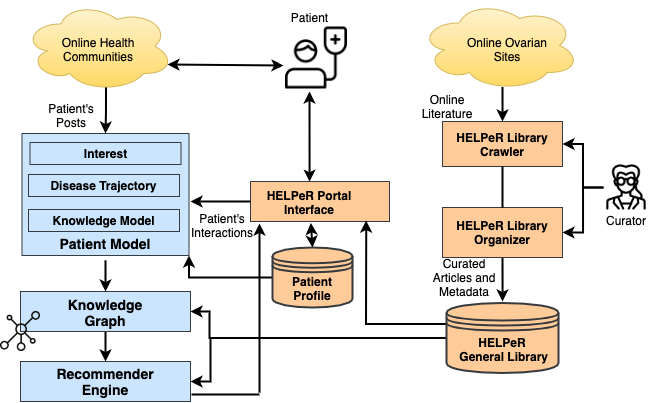
|
|
KA-PHRS, HELPeR
In this project, I worked with health professionals on an NIH-funded initiative to develop HELPeR, a personalized health recommender system for ovarian cancer survivors (KA-PHRS: Knowledge Appropriate Patiend Focused Recommender Systems). The system adapts to each patient’s knowledge level and their disease progression, providing more relevant health information over time. By integrating a dynamic knowledge model, HELPeR ensures that the recommendations evolve with the patient’s needs. We're currently running a 12-week study to evaluate how well this approach supports patient engagement and decision-making during their treatment journey. More details coming soon..
|
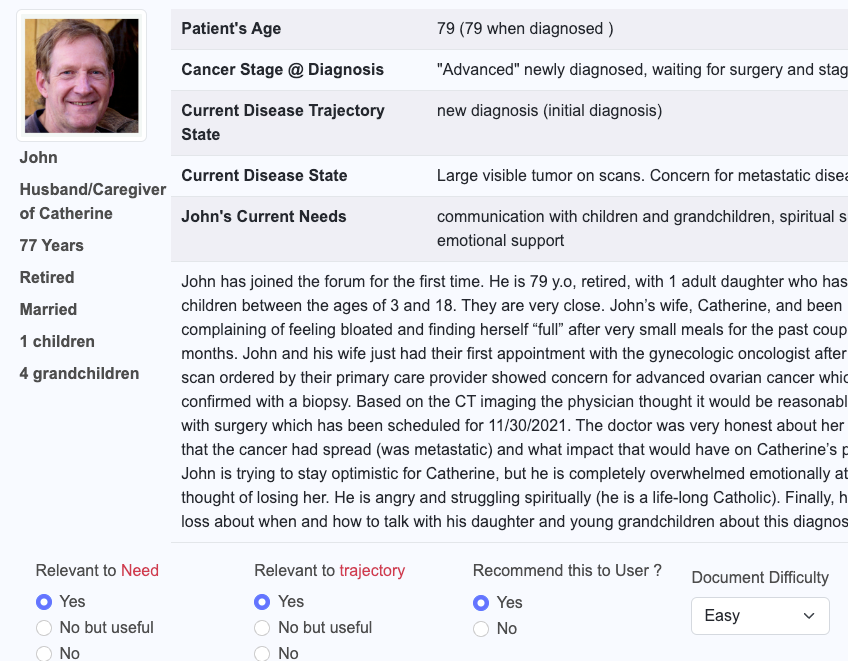
|
|
Persona for Expert Evaluation for Health Recsys
In this study, we developed and evaluated HELPeR, a personalized recommender system designed for ovarian cancer patients and caregivers, aimed at addressing their unique health information needs. Leveraging health professionals' expertise, we conducted a feedback study using personas representing diverse patient and caregiver scenarios. Oncology nurses assessed the relevance and appropriateness of system-recommended articles to each persona’s needs and disease trajectory. While expert evaluations demonstrated the system's potential, moderate agreement (Cohen's Kappa scores ranging from 0.61 to 0.68) highlighted the need for further refinement. Our findings emphasize the importance of incorporating expert feedback to improve the system’s relevance and efficacy, with future work focused on enhancing recommendations and addressing cold-start challenges.
|
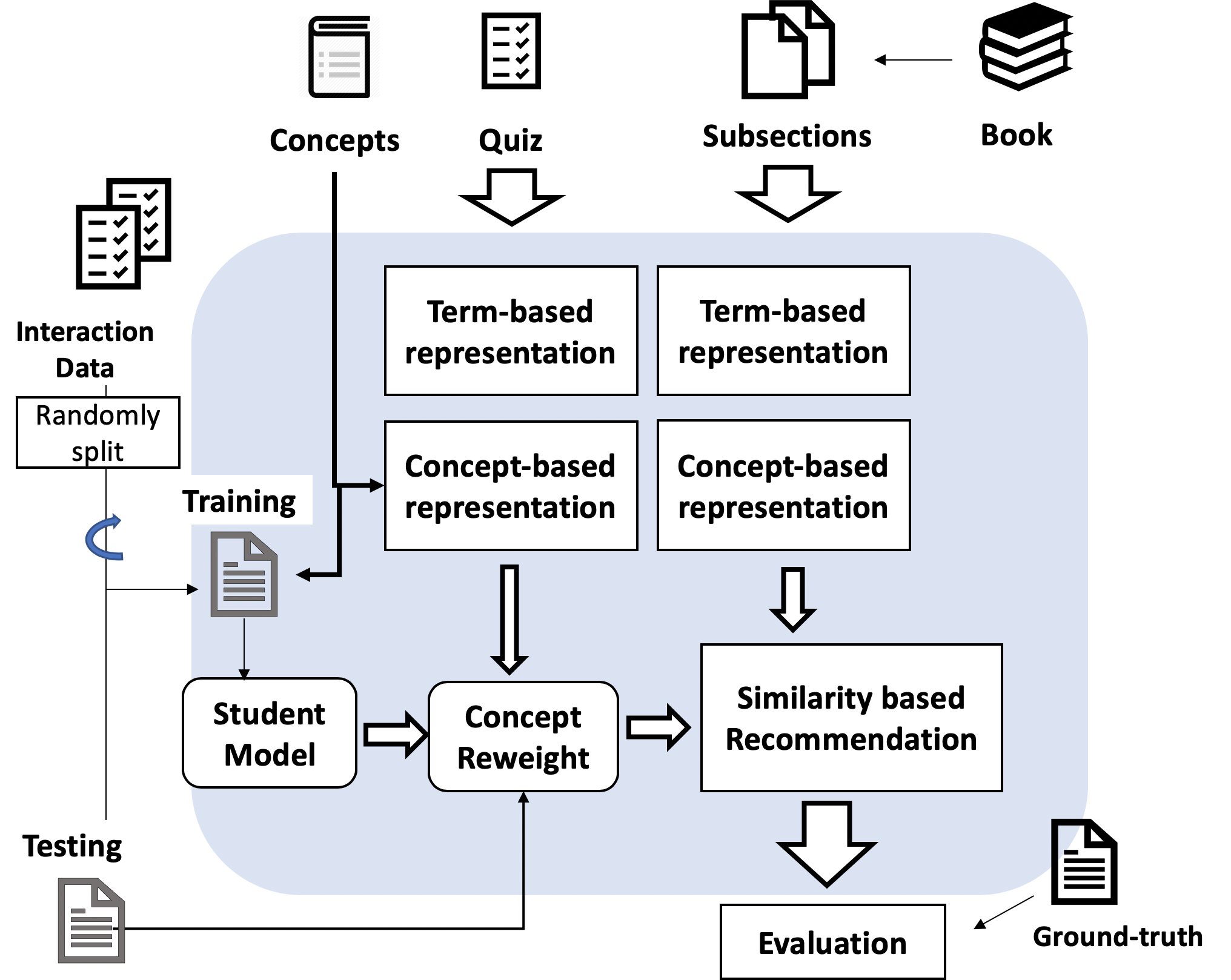
|
|
KA-Recsys - Education
Assessments and quizzes provide essential feedback on student learning, but when students struggle with specific concepts, they need tailored recommendations that target their knowledge gaps. Without effective remediation, students often re-read the same material, which may not address their underlying deficiencies. In my research, I developed methods to recommend not only textbook sections but also supplementary resources like Wikipedia articles, enhanced by integrating domain knowledge (concepts) for precise, remedial guidance. By incorporating dynamic student knowledge states, these recommendations become even more personalized, aligning with individual learning needs and improving learning outcomes. This approach emphasizes the importance of combining both domain-specific knowledge and student data for more effective, targeted recommendations in educational systems.
|

|
|
BART Based FacetSUMM
Let me tell you about FacetSum—a real game-changer in summarizing long documents! Instead of struggling through pages of dense research articles, FacetSum provides targeted summaries for each key section: purpose, method, findings, and value. This approach gives readers structured insights and helps them quickly grasp the most important points.
My contribution? I fine-tuned BART, a leading NLP model, to generate these faceted summaries. BART’s ability to generate coherent, structured summaries ensures that instead of just getting a generic overview, readers receive focused information specific to the section they’re interested in. This not only makes research more accessible but also speeds up the process of finding the insights you need. I’m thrilled to have been part of this work, which has the potential to revolutionize how we interact with long-form academic content!
|
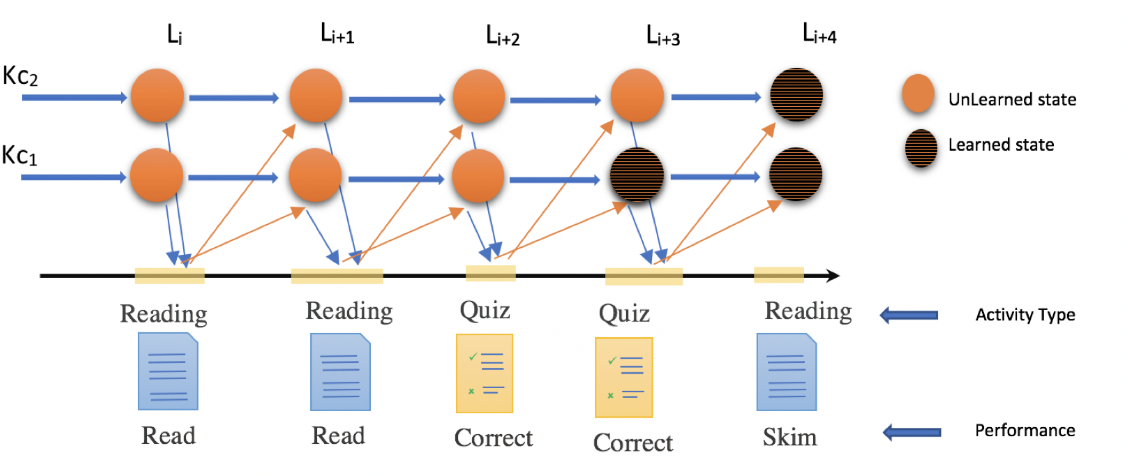
|
|
Behavior-Performance Model
In traditional student models, we typically rely on assessments like quizzes or problem-solving exercises to track a student's knowledge state. However, when it comes to intelligent textbooks, we often don’t have enough of this assessment data, but instead, there’s a wealth of behavior-based information—how students are interacting with the content. This is where my work on the Behavior-Performance Model (BPM) comes in.
BPM takes these interactions, such as whether a student is skimming through a section or diving deep with focused reading, and uses them to enhance the accuracy of knowledge models. By differentiating between these behaviors, the model predicts student performance with more precision. In fact, the results from BPM not only improve quiz performance predictions but also provide more realistic training parameters that mirror actual learning behaviors. This approach helps create a more adaptive, personalized learning experience, ensuring that students receive content that truly supports their learning journey based on how they engage with the material.
|
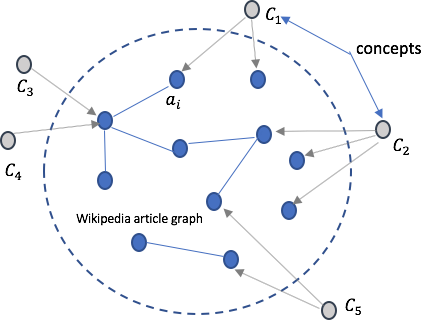
|
|
Domain Concept Representation
Imagine being a student with access to endless online resources but struggling to find exactly what you need. While digitization has made learning materials more accessible, it’s also overwhelming. That's why my project focuses on concept-level linking for educational resources.
Instead of just matching keywords or broad topics, I’m developing precise representations that connect students to the most relevant textbook sections, Wikipedia pages, or research papers. This not only solves the term-mismatch problem but also ensures students get exactly the information they need, right when they need it. By connecting content at the concept level, we’re making learning faster, more efficient, and way more enjoyable!
|


